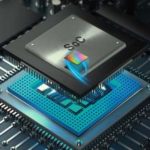In April, I covered a new AI inference chip from Flex Logix. Called InferX X1, this part had some very promising performance metrics. Rather than the data center, the chip focused on accelerating AI inference at the edge, where power and form factor are key metrics for success. The initial information on the chip was presented at … Read More
WEBINAR: Design Adaptive eFPGA IP
Since the start of PROMS, PLDs and FPGAs we have learned the importance of programmability in modern semiconductor design. Today we have eFPGAs for “design adaptive” embedded programmability and that is what this webinar is all about.
Several key points are discussed starting with the Law of Accelerating Returns as it applies… Read More
Webinar: Maximize Performance Using FPGAs with PCIe Gen5 Interfaces
FPGAs are a popular method to implement hardware accelerators for applications such as AI/ML, SmartNICs and storage acceleration. PCIe Gen5 is a high bandwidth communication protocol that is a key enabler for this class of applications. Putting all this together presents significant demands on the FPGA for performance and … Read More
Menta CEO Update 2020
What products are Menta offering today?
Menta is a semiconductor IP provider. We are the only proven European provider of programmable logic to be embedded inside customers’ SoCs and ASICs. This programmable logic is in the form of embedded FPGA IP. So, we offer our customers the possibility to have a small portion of their SoC as… Read More
Achronix Blog Roundup!
Blogging is not an easy thing to do. It takes time, patience, commitment, and creativity. SemiWiki brought blogging to the semiconductor industry and many companies have followed. Very few have been successful with personal or corporate blogs but as a premier semiconductor blogger I have developed a proven recipe over the last… Read More
CEO Interview: Robert Blake of Achronix
Achronix came to SemiWiki in 2017 and we added a chapter on the history of Achronix in our update version of “Fabless: The Transformation of the Semiconductor Industry”. So yes we know quite a bit about Achronix and the FPGA business so it was a pleasure to do a CEO Q&A with Robert Blake. First lets take a look at his … Read More
eFPGA – What’s Available Now, What’s Coming and What’s Possible!
eFPGA is now widely available, has been used in dozens of chips, is being designed into dozens more and it has an increasing list of benefits for a range of applications. Embedded FPGA, or eFPGA, enables your SoC to have flexibility in critical areas where algorithm, protocol or market needs are changing. FPGAs can also accelerate… Read More
Flex Logix CEO Update 2020
We started working with Felx Logix more than eight years ago and let me tell you it has been an interesting journey. Geoff Tate was our second CEO Interview so this is a follow up to that. The first one garnered more than 15,000 views and I expect more this time given the continued success of Flex Logix pioneering the eFPGA market, absolutely.… Read More
Using ML Acceleration Hardware for Improved DSP Performance
Some amazing hardware is being designed to accelerate AI/ML, most of which features large numbers of MAC units. Given that MAC units are like the lego blocks of digital math, they are also useful for a number of other applications. System designers are waking up to the idea of repurposing AI accelerators for DSP functions such as … Read More
Accelerating Edge Inference with Flex Logix’s InferX X1
For a long time, memories were the primary technology driver for process development. If you built memories, you got access to cutting-edge process information. If you built other products, this could give you a competitive edge. In many cases, FPGAs are replacing memories as the driver for advanced processes. The technology… Read More











Flynn Was Right: How a 2003 Warning Foretold Today’s Architectural Pivot